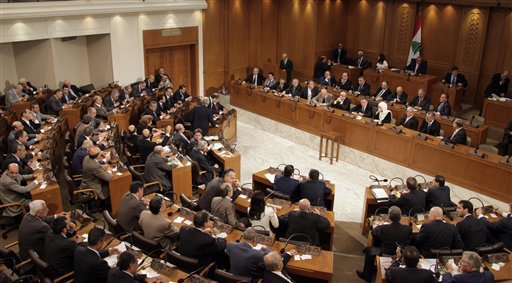
by Joseph A. Kechichian, Senior Writer
Beirut: A fresh dispute surfaced in Lebanon a few days ago over the appointment of a senior government official at the Ministry of Finance, where a post reserved for a Christian — according to the 1943 National Pact and 1989 Tai’f Agreement — went to a Shiite.
Accusations and denials followed — as expected in a country where sectarianism is an institutionalised matter — which raised fundamental questions.
What preoccupied many were the long-term consequences of such appointments at a time of profound demographic changes that continue to record significant Christian losses.
In fact, and even if no references were made to the latter, the council of Maronite bishops addressed the issue of balance among all sects in state institutions a few days ago, after several officials complained about the alleged exclusion of Christians from key posts.
In an official statement issued under Patriarch Mar Beshara Butros Al Ra’i, the bishops insisted that the designation of civil servants must be respected and “be based on competence, integrity and the willingness to fight corruption,” which it estimated had become rampant in most institutions.
Although a long-standing concern, Michel Aoun’s Free Patriotic Movement raised the ante last Tuesday, as it decried what it called the exclusion of Christians from state posts, including the Finance Ministry, maintaining that such steps were contrary to the country’s National Pact.
The target of this latest missive, Finance Minister Ali Hassan Khalil, a member of the Amal Movement led by Shiite Speaker Nabih Berri, was accused of replacing a Maronite Christian with a Shiite civil servant at a top post at his ministry. Khalil clarified that no new appointments were made but rather a reshuffle of incumbent ones, rejecting charges that his behaviour was “sectarian”. “We have never resorted to the sectarian rhetoric and we believe in coexistence and balance,” hammered Khalil. He continued: “We have always called for the implementation of the Ta’if Accord and we’re keen on all sects. There is no one leader, sect or party in this country,” Khalil stressed, as he affirmed that Lebanon could only function when all sects were treated fairly.
A livid minister delivered sharp rebuttals to his foes, blaming them for orchestrating a political campaign with hidden agendas, and provided details as to what occurred under his watch. Khalil apparently replaced Bassema Antonios, a Christian who served in the taxpayers department, by Mohammad Sulaiman, a Shiite employee. The minister noted that the said case was “one out of 400 jobs” and that the decision also involved “the appointment of Christians in other departments.” He defended himself saying: “I am not the one to be accused of marginalising Christians. For your information I have four Christians within my work team at the ministry,” which raised eyebrows given the tangential focus.
Even more bizarre, the minister warned he had “files” on what other ministries were doing, but that he did not want to start confrontations.
He revealed that there were posts normally reserved for Shiites that were instead given to Christians, adding: “we (Shiites) are OK with this ... I do not want parity in the ministry, but instead a counter-balanced share for Christians” that confirmed sectarian practices across the board.
Other officials received similar denunciations.
Ghazi Zoaiter, the Minister of Public Works was targeted for favouritism too, as he pledged to reveal the actual data to denounce news reports that singled him out.
Zoaiter, another Shiite minister from the Amal Party, faced a double whammy: internal appointments and, equally problematic, financial allocations to various projects in Christian areas. “The Ministry has spent LL24 billion (Dh58.32 million) in 2015 on projects in Mount Lebanon,” Zoaiter reported, referring to a detailed letter he received from Labour Minister Sejaan Qazzi, a Maronite Minister of Labour from the Phalange Party, who, in turn, asserted that injustices were being committed in projects implemented in predominantly Christian areas, which allegedly received less than 15 per cent of all public works construction allocations across the country.